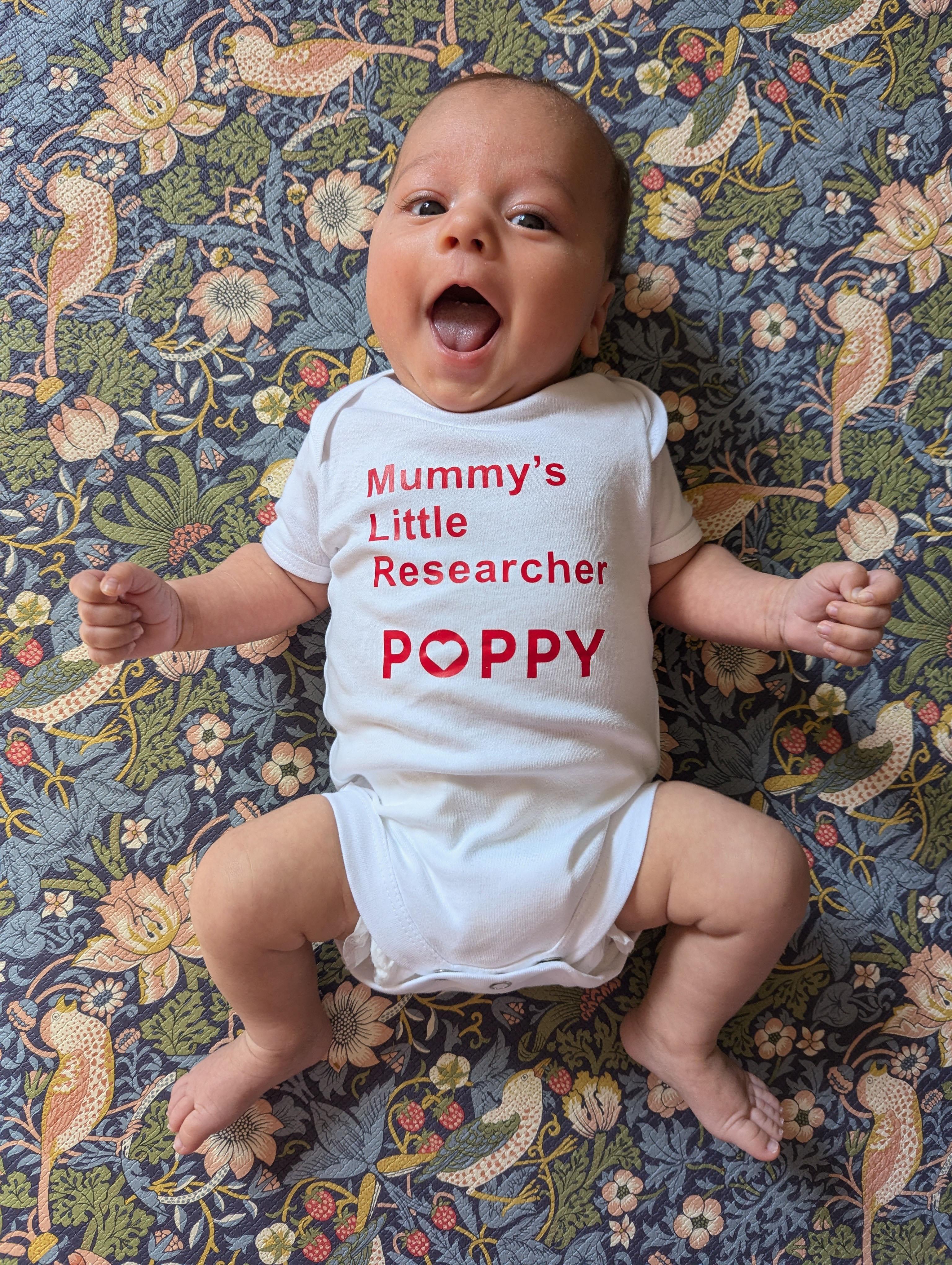“It’s exciting to be part of research” – East of England mum gives birth to first baby in pre-eclampsia study

A mum from Cambridge has become the first person to give birth while taking part in POPPY, a pregnancy research study.
Chloe, 30, gave birth to her baby boy, Idris, in May. The POPPY study at Cambridge University Hospitals NHS Foundation Trust (CUH) is examining the long-term health impacts of complications that can affect the placenta, such as pre-eclampsia (high blood pressure during pregnancy).
The Preconception to pOst-partum study of cardiometabolic health in Primigravid PregnancY (POPPY) study aims to understand more about the risks of developing heart disease and diabetes in women who experience placental complications.
Placental complications can include pre-eclampsia and conditions which can restrict the baby’s growth. Women who have these complications have twice the risk of developing heart disease and diabetes later in life, compared with women who have a healthy pregnancy.
Researchers hope that by assessing risk factors for heart disease and diabetes in women before, during and after pregnancy, they can potentially prevent placental complications in the future and improve women’s health over their lifetime.
The study is funded by the Wellcome Trust and is supported by the National Institute for Health and Care Research (NIHR) Cambridge Biomedical Research Centre (BRC) and the NIHR Clinical Research Network (CRN).
Chloe, a schoolteacher, signed up to POPPY in September 2023 after a poster advertising the study caught her eye on the streets of Cambridge. As she was already planning her first pregnancy, the opportunity to take part came at the perfect time.
Her first visit with the POPPY team took place before becoming pregnant. She underwent several tests to establish her baseline health, which included an echocardiogram (heart scan), carotid (artery) ultrasound, a blood pressure check and a blood test. Chloe said:
“It was all quite interesting, and it was really nice chatting to the research nurses, finding out a bit more about the study and about their work more broadly. It was a nice added bonus to have a bit of a checkup of my own cardiovascular health too.”
Chloe found out she was pregnant a couple of weeks later, so returned to CUH soon after for an early pregnancy visit. She had regular checks throughout her pregnancy, at 12 weeks, 20 weeks, and 36 weeks. Chloe may also be seen again when Idris is nine months old.
Chloe praises the study team for being flexible so that taking part in POPPY did not affect her job as a teacher in any way. The study visits were coordinated to pair with her regular pregnancy scans. She said:
“I really liked contributing to research that might help people in the future, and being part of the early stages of the POPPY study. It feels like I’m part of something significant that’s an important area of research.
“Taking part in research is a really good way of learning about something you might not know much about, and it’s a good opportunity to find out more about your own health too.
“I know that placental complications can be debilitating and scary, so it’s good to do something that could help prevent them in the future. It’s exciting to be part of that research!”
Professor Ian Wilkinson, Chief Investigator of the POPPY study, said:
“The whole POPPY team sends their warmest congratulations to Chloe and family on the arrival of Idris, who is the first baby to be born in the POPPY Study.
“I would like to thank Chloe and all the other women who have volunteered to take part. The study will help us to understand why women who develop complications like high blood pressure in pregnancy are at an increased risk of heart attacks and stroke in later life.
“POPPY is still actively recruiting women and more details can be found on our website at www.poppyuk.net.”
POPPY is open for recruitment at CUH, Glasgow Royal Infirmary in Glasgow, Queen Charlotte’s and Chelsea Hospital, and St George’s Hospital, both in London. University College Hospital in London and Saint Mary’s Hospital, part of Manchester University NHS Foundation Trust, will be opening for recruitment in September.
Dr Helen Macdonald, Chief Operating Officer for the NIHR CRN East of England, said:
“We are grateful for people like Chloe, and everyone in the East of England, who participate in vital research like the POPPY study. Because of them taking part, researchers are able to find out more about health conditions and possibly learn how to prevent them occurring in the future.”
If you would like to find out more about research and how you can take part, visit www.bepartofresearch.uk.
Pictured below: Idris wearing his POPPY bodysuit



